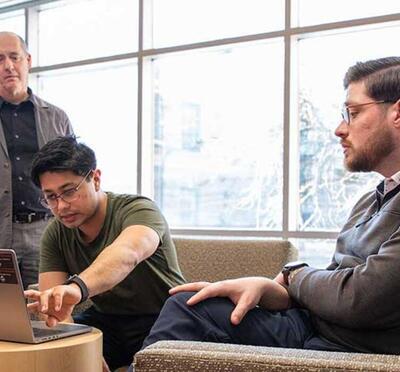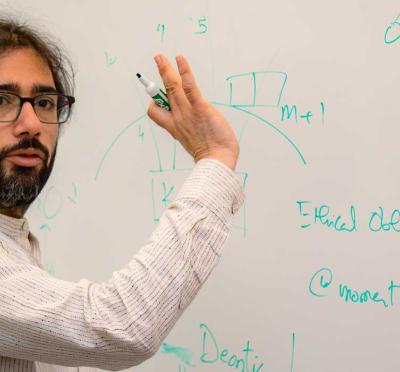Oregon State is part of a $20 million federal effort to develop artificial intelligence for agriculture. Launched by the National Science Foundation in 2021, the AgAID Institute will tackle mounting challenges — such as diminishing water and labor supplies, weather variations, and climate change.
“It is essential to improve the robustness, efficiency, and adaptability of food production,” said Alan Fern, professor of computer science. Fern serves as the institute’s principal investigator for Oregon State, heading up an AgAID team of 13 researchers in the College of Engineering. “The institute aims to achieve this by identifying the best ways to integrate humans and AI/robotics technology.”
Oregon State’s team will lead the institute’s fundamental and applied research in AI, robotics, and human factors. The group will work closely with agricultural researchers and others, including farmers, ranchers, and agricultural commodity producers. Researchers will explore robotics and intelligent systems holistically and examine their impacts on people.
“Humans and AI/robotics have very different capabilities and competencies, and there are many possible ways of combining them for any given agricultural application. But only some of those combinations will be effective,” Fern said. “We want to design and build workflows that have real utility and thus actually get used.”



